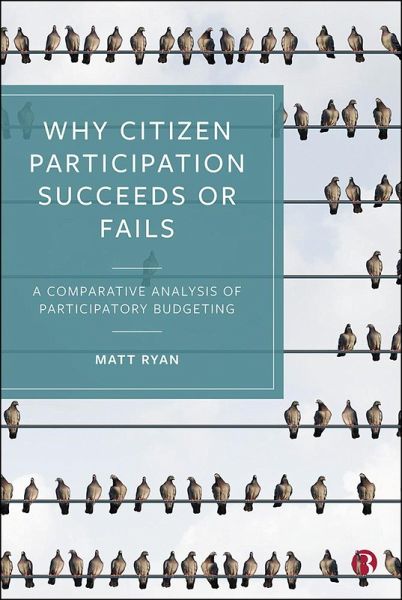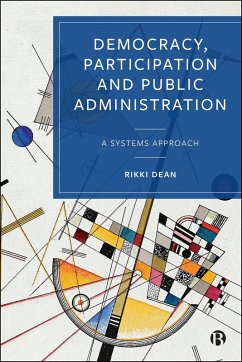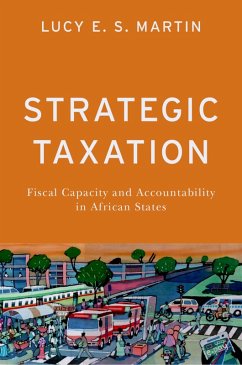
Why Citizen Participation Succeeds or Fails (eBook, ePUB)
A Comparative Analysis of Participatory Budgeting
Versandkostenfrei!
Sofort per Download lieferbar
29,95 €
inkl. MwSt.
Weitere Ausgaben:

PAYBACK Punkte
15 °P sammeln!
Matt Ryan's landmark comparative review of participatory budgeting, or collective decisions on how public money is spent, reveals the factors behind its success in achieving democratic engagement. The culmination of ten years of research into participation, this is a systematic analysis of how, when and why citizens gain control over these important decisions. Comparing global examples of both positive change and notable failure, the book provides persuasive evidence and guidance for future public involvement in taxation and spending. For advocates and participants of democratic reform and tho...
Matt Ryan's landmark comparative review of participatory budgeting, or collective decisions on how public money is spent, reveals the factors behind its success in achieving democratic engagement.
The culmination of ten years of research into participation, this is a systematic analysis of how, when and why citizens gain control over these important decisions. Comparing global examples of both positive change and notable failure, the book provides persuasive evidence and guidance for future public involvement in taxation and spending.
For advocates and participants of democratic reform and those with interests across political science, this is an essential guide to one of the most significant democratic innovations of our times.
The culmination of ten years of research into participation, this is a systematic analysis of how, when and why citizens gain control over these important decisions. Comparing global examples of both positive change and notable failure, the book provides persuasive evidence and guidance for future public involvement in taxation and spending.
For advocates and participants of democratic reform and those with interests across political science, this is an essential guide to one of the most significant democratic innovations of our times.
Dieser Download kann aus rechtlichen Gründen nur mit Rechnungsadresse in A, D ausgeliefert werden.













